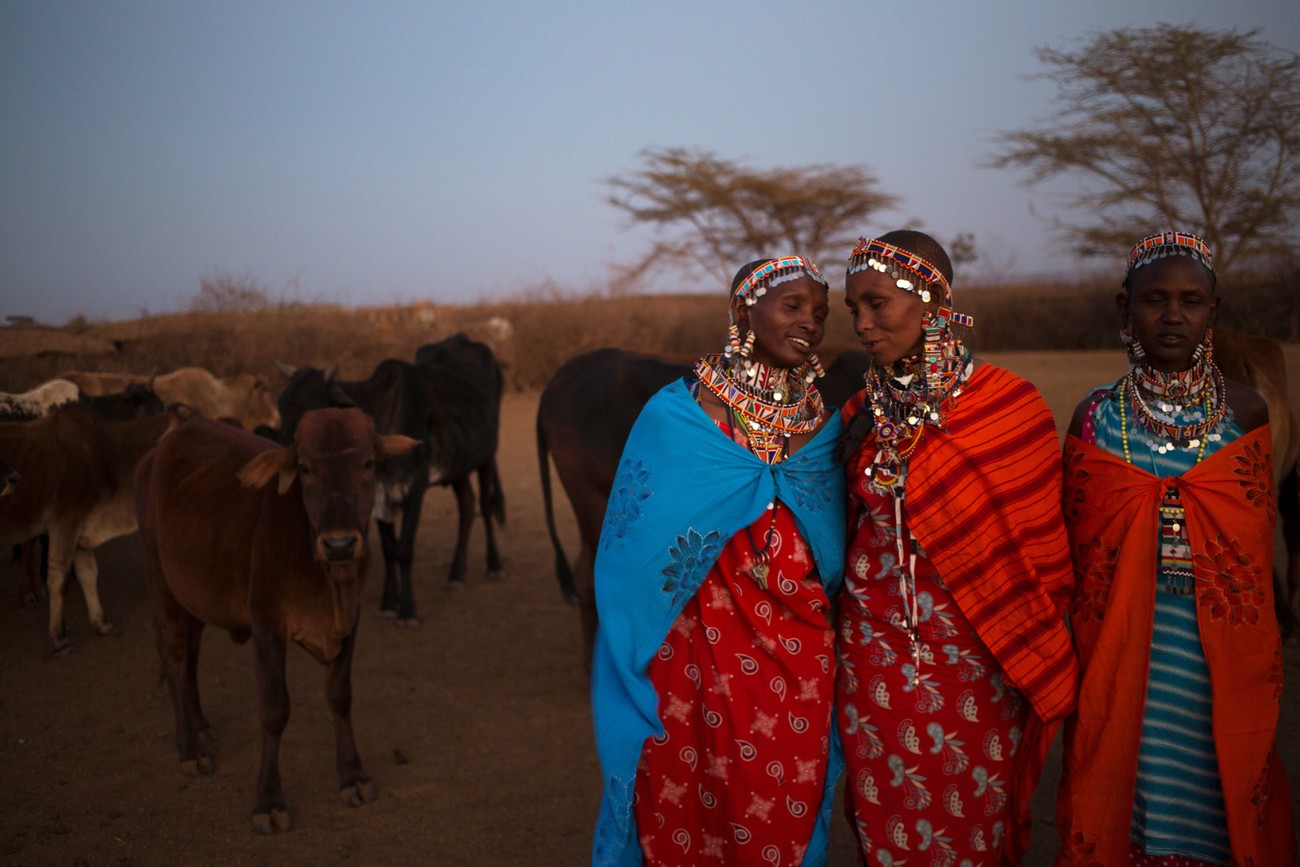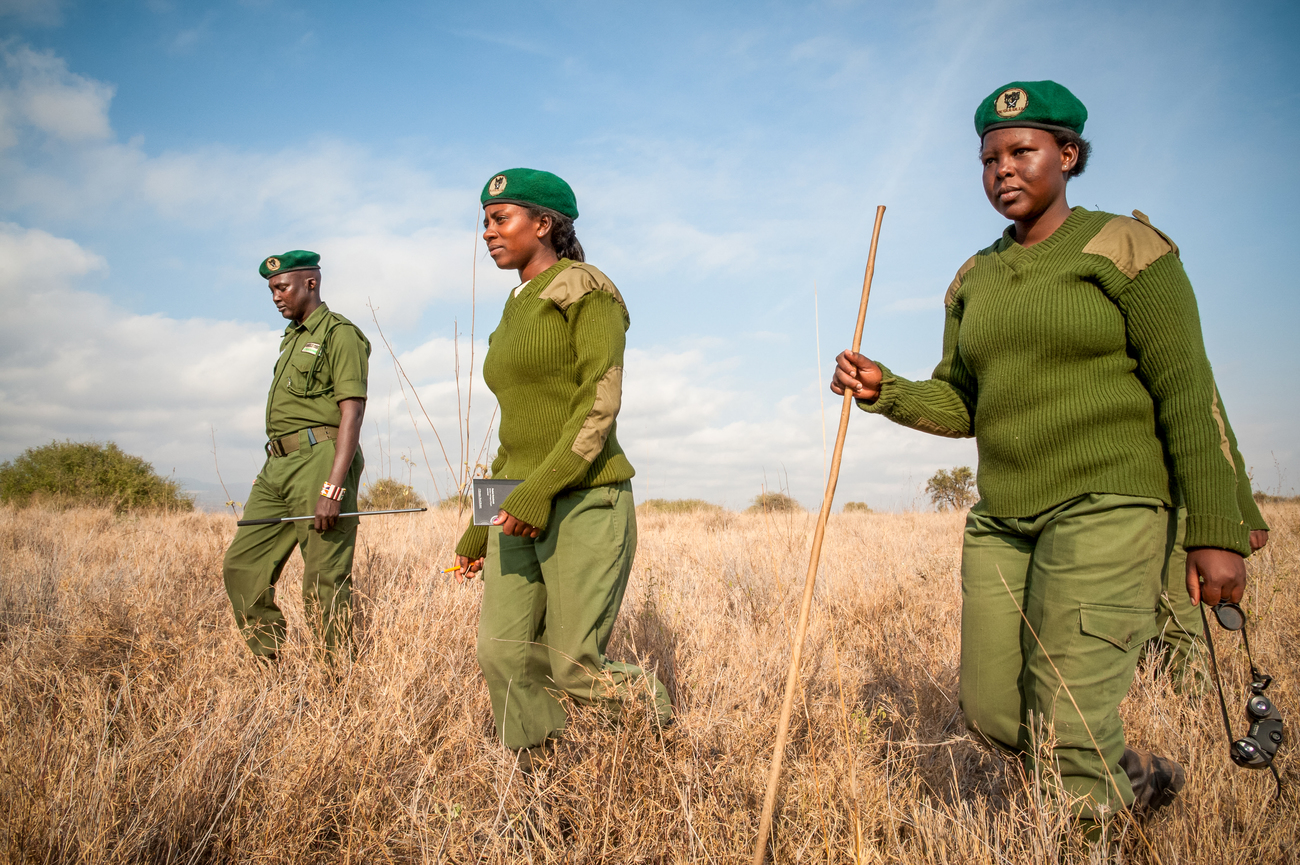Team Lioness - Kenya
We're transforming what it means to be a woman rangerwhy gender equity is crucial to conservation in Kenya
why gender equity is crucial to conservation in Kenya

At IFAW, we recognise the unique challenges faced by women, and we work to make their voices heard in conservation. UN Sustainable Development Goal (SDG) #5 calls to end all forms of discrimination against women and girls. The targets include eliminating violence against women, recognizing and valuing unpaid care and domestic work and ensuring women have equal access to decision-making, public life and resources. Though it might not be obvious, all of these targets are closely connected to conservation.
in Kenya, women’s lives are tightly intertwined with wildlife
Wildlife rangelands often overlap with rural areas, where women providing for their families tend to interact with wildlife more than men. Actions like collecting water, harvesting crops and collecting firewood for cooking put women at greater risk of dangerous encounters with animals like elephants, buffaloes, crocodiles and hippos.
Danger aside, however, these experiences also mean women have more opportunities to observe and learn from animal patterns and behaviors. That knowledge is critical when it comes to solving conservation dilemmas. As primary caregivers at home and in their communities, women are also uniquely positioned to share their deep knowledge of local wildlife.
The future of conservation needs local women in leadership positions. When women have opportunities for education and professions, their economic livelihoods improve, their communities thrive and human-wildlife conflict plummets.

Here are some of the ways we are supporting women in Kenya:
- Educational scholarships. Since 2014, IFAW has offered education scholarships to more than 120 students studying at various levels of secondary, college and university. We seek to create opportunities for women and girls to access education and employment opportunities and take on leadership roles in their communities, especially with regards to natural resource management.
- Team Lioness, one of the first all-women wildlife ranger units in Kenya. Since February 2019, IFAW’s Team Lioness has been protecting wildlife in Amboseli’s vast community lands. So far, this specialised unit is made up of 16 female rangers, all drawn from the local community. Most members are the first in their families to have formal employment, which provides economic freedom to them and their families. The women also serve as role models, providing social empowerment to other women from the local community.
Several members of Team Lioness are mothers. That’s why IFAW, in collaboration with the German-based Margarete-Breuer Stiftung (MBS) Foundation, has constructed a nursery where babies of Team Lioness members are cared for during the working day, giving the women peace of mind that their children are safe as they go about their daily work duties.
- The Jenga Mama (Empower Women) Project. IFAW has also partnered with the MBS Foundation to finance 60 local community women with vocational training in hairdressing and beauty therapy, food and beverage production, plumbing, garment making and information technology. The training will support these women with the professional skills and knowledge they need to start small businesses, reducing their dependency and interactions with nature and giving wildlife Room to Roam in their habitat.
- Esiteti Osutua women’s community-based organisation. IFAW has contracted the Esiteti Osotua women’s community-based organisation in Amboseli, Kenya to provide monthly supplies and rations to more than 80 community wildlife rangers. The financial returns are split two ways: an agreed portion goes to the women’s savings bank accounts; the other portion is given to each of the 179 women to cater to the needs of their families, such as paying school tuition fees and purchasing groceries.
At IFAW, we engage with the people living closest to the animals and habitats that we strive to protect. We aim to ensure positive and sustained change. We believe that protecting critical habitats drives long-term benefits for both wildlife and people. By creating new alternative sources of income that generate stability and leadership, women in Kenya are helping their communities create peaceful coexistence with wildlife.
Related content
Our work can’t get done without you. Please give what you can to help animals thrive.